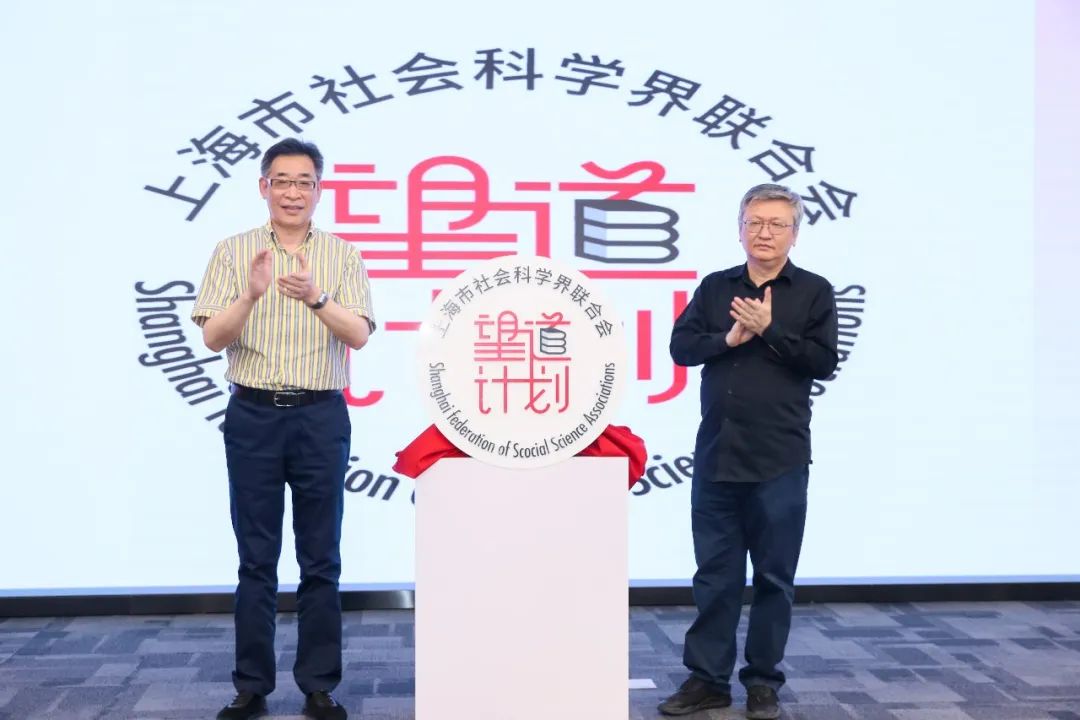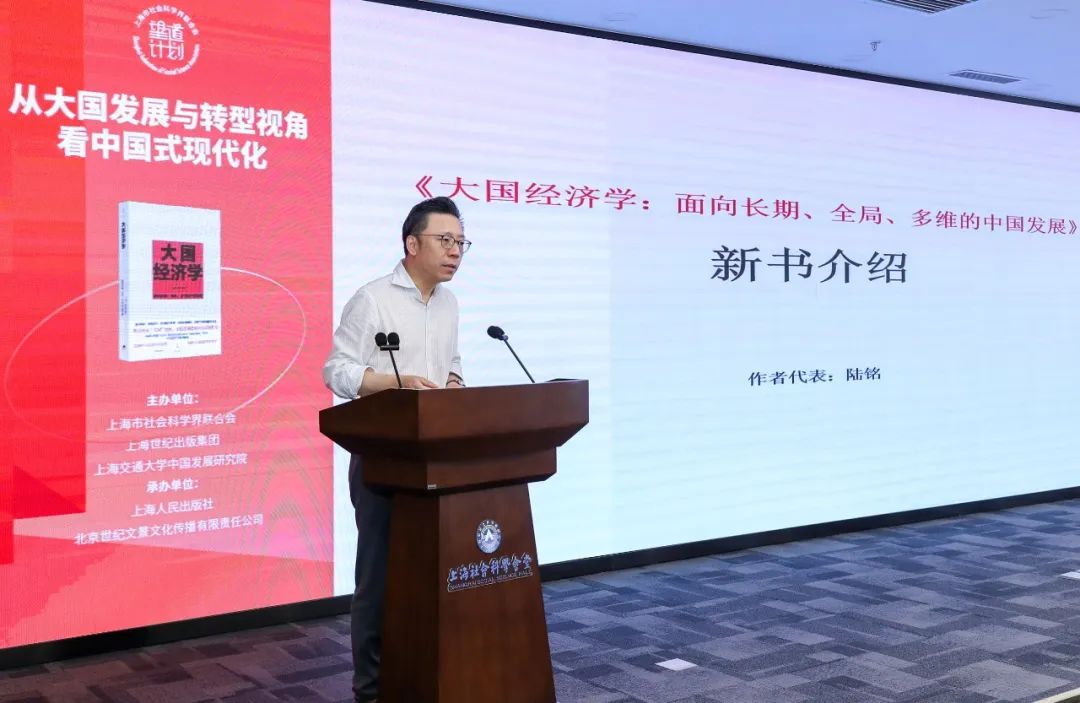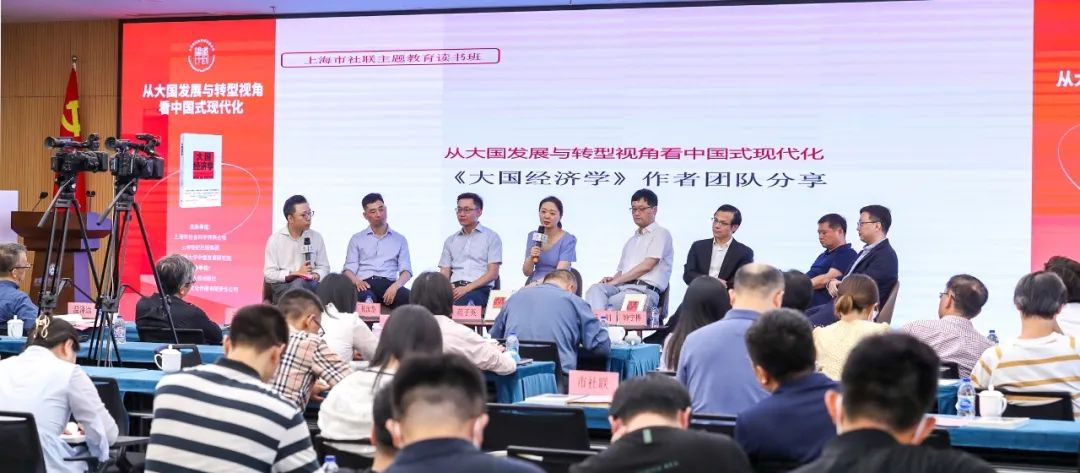Shanghai Federation of Social Science Associations and other organizations jointly host the book launch event of Economics of Great Powers and the inauguration ceremony of Wangdao Program

In the afternoon of June 9th, the book launch of Economics of Great Powers and the inauguration ceremony of Wangdao Program, jointly hosted by Shanghai Federation of Social Sciences, Shanghai Century Publishing (Group) Co., Ltd., and Shanghai Jiao Tong University’s Shanghai Institute for National Economy, took place at the meeting hall of Shanghai Federation of Social Science Associations.

Wangdao Program is named after Mr. Chen Wangdao, a renowned educator, linguist, and the first Chairman of Shanghai Federation of Social Science Associations. This program aims to support the publication of a series of academic works with both academic leadership and public influence, cultivate a group of young and middle-aged social science scholars who are keenly interested in the Chinese reality and practices. In so doing, the program will muster the wisdom of social sciences to tell compelling stories about the Chinese path to modernization, and, in the meanwhile, compose a wonderful “Shanghai Chapter” of the grand scheme of “developing philosophy and social sciences with Chinese characteristics.” Economics of Great Powers is the first work that has earned financial support by Wangdao Program.

As a representative of the author team, Prof. Lu Ming, a distinguished professor of Antai College of Economics and Management at Shanghai Jiao Tong University and Executive Dean of university’s Shanghai Institute for National Economy, introduced the conception of the book and its overall design and argument. This book breaks away from the conventional practice of analysing Chinese economics based on sectors. Instead, it establishes a progressive logical framework. One major argument is the significance of China’s opening-up for China’s development phenomenon. Chapter 1 starts from globalization and then introduces the three major transformations faced by Chinese society: the shift from tradition to modernity, the transition from an agriculture-dominated economy to an industrial one, and the transformation from relative isolation to openness. Chapters 2 and 3 delve into China's governance structure from, respectively, the administrative and fiscal perspectives. Chapter 4 addresses the ownership issues that reflect China's unique transition characteristics. Chapter 5 extensively explores industrial policies, which are crucial for understanding China’s distinctive features. Subsequent two chapters focus on reforms in the factor market, addressing regional development centered on population and land, as well as financial markets and capital allocation. Chapter 8 discusses global experiences and China’s status quo in industrial structural transformation. Chapter 9 delves into the vision of common prosperity and income distribution. And the final chapter, based on a review of development from modern to contemporary times, explores the collision and integration of traditional culture with modern market-oriented economic development.

During the roundtable discussion, the authors of Economics of Great Powers explored the significance of “great powers” in economic research and its relevance to China’s practical development from their respective research perspectives. They also shared their unique insights into the challenges that China faces in its transformation and possible developmental forms as solutions.
The authors of Economics of Great Powers believe that while modern economic theories have their limitations, they do not preclude an explanation of China’s economic development path. How to deeply understand the universal principles underlying China’s development and clarify what makes China unique are the pressing questions that these economists, who have witnessed China’s rapid development and transformation since the era of reform and opening-up, feel compelled to answer. How many dimensions are needed to build an adequate model to explain a great power’s economics? These economists have collectively offered their preliminary but very compelling answers.

